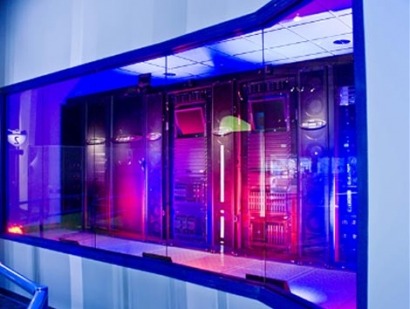
The EU Code of Conduct was created in response to increasing energy consumption in data centres. The EU aims to inform and encourage data centre operators and owners to reduce energy consumption in a cost-effective manner without decreasing mission critical data centre functions. The assessment is made against a set of best practices to reduce energy losses which include the usage of energy efficient hardware, installing free cooling and cold aisle containment.
Power usage effectiveness (PUE) is an indicator for how efficiently a computer data centre uses its power. In May, the Uptime Institute gave IBM data centres a rating of 1.65 for average power usage compared to the industry average of 1.8.
The awarded 27 IBM Green Data Centres represent over 70 percent of IBM's strategic outsourcing data centres in 15 European countries. Many of the data centres have also been designed to support cloud computing, in an effort to help clients around the world operate smarter. The energy improvements implemented in these data centres helped IBM meet a goal set in 2007 to double the IT capacity of its data centres within three years without increasing the power consumption.
"Data centres have always been a critical part of IBM's heritage and are a significant part of our energy use and costs," said Harry van Dorenmalen, IBM Chairman, Europe. "The recognition of our commitment and leadership by the EU Code of Conduct is important to us since energy and climate related issues are part of IBM's long standing corporate commitment to environmental leadership. Based on our Smarter Planet vision we can substantially reduce energy consumption in many ways in our society."
IBM uses analytics to operate its data centres, implementing the company's Mobile Measurement Technology (MMT), which was developed by IBM Research. This technology instruments the data centres with thousands of sensors to record and analyze temperatures and air flow to detect hot and cold spots. By providing energy flow insight, MMT provides the intelligence to efficiently cool its data centres with a high measure of security and reliability and significant reduction in cost.
IBM also maintains energy efficiency leadership in its data centres by deploying uniform practices around the world including replacing older hardware equipment with more energy efficient servers, industry-leading server consolidation and virtualization rates and efficient, intelligent use of electric power and air cooling in data centre facility operations. IBM services has leveraged its operational excellence from running energy efficient data centres to help hundreds of clients in Europe and around the world achieve similar results.
The 27 IBM Green Data Centres that have been honoured by the EC represent over 70 percent of IBM's strategic outsourcing data centres in 15 European countries. The energy improvements implemented in these data centres helped IBM meet a goal to double their IT capacity within three years without increasing their power consumption.
[Inset: Viewing area providing a glimpse into one of IBM’s smarter data centres.]
For additional information:

